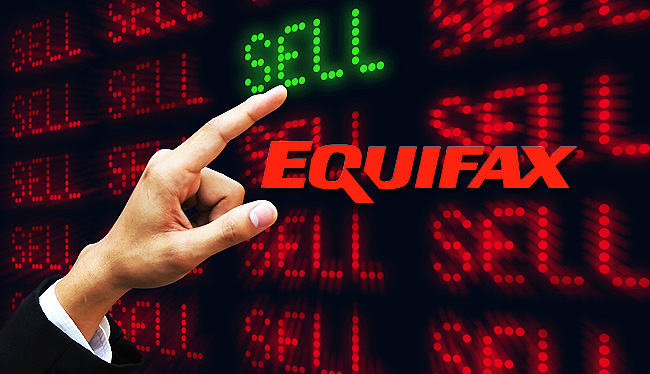
Equifax is having — and exacerbating — all kinds of problems. Not only was it hacked, resulting in the theft of the personal info 143 million Americans, its overly complicated system for informing users if their data was stolen has gotten all kinds of clap back. Especially the poorly worded bit where Equifax seemed to offer users a look at whether they were hacked only if they waved their right to sue over the breach. That detail, which has gotten a little overblown in its rounds on social media, has inspired almost as much anger as the hack itself.
https://twitter.com/AGSchneiderman/status/906195350532304896
Equifax's senior managers thought it was more important to sell their stocks than inform 143 million Americans that their data wasn't safe.
— Ro Khanna (@RoKhanna) September 9, 2017
https://twitter.com/sambonfante/status/906375451794333696
https://twitter.com/susanthesquark/status/906250416836419584
Equifax changed the language around the system to check whether you’ve been hacked or not, but the backlash is still unfurling. But there’s still plenty of problems. The site still doesn’t work very well. Some have noted that the domain name Equifax registered for people to check on their data should have been a subdomain of Equifax’s pre-existing site, rather than something that could appear to have been registered by hackers impersonating Equifax. Others have noted the site is buggy and doesn’t work very well, further frustrating people who are understandably really concerned about their data.
PSA – I made up a bunch of info to see if Equifax would also tell me I'd been hacked. It said I had been…with MADE UP INFO.
— Sarah Buhr Davis (@sarahbuhr) September 9, 2017
The #Equifax data breach – @FTC's guidance on what to do: https://t.co/Nf5GIyC1gW #databreach #security pic.twitter.com/cjY80kauoY
— FTC (@FTC) September 8, 2017
Even Elizabeth Warren is up in arms over Equifax’s response to the hack. “That’s right,” she tweeted, “That’s right: @Equifax fails to protect your data and then they demand you give up legal rights if you want to limit the damage they caused.” Now the Senate Commerce Committee is involved.
That's right: @Equifax fails to protect your data and then they demand you give up legal rights if you want to limit the damage they caused.
— Elizabeth Warren (@SenWarren) September 8, 2017
Equifax proves why we must protect your right to join class actions. pic.twitter.com/Z2APQcRb0K
— Elizabeth Warren (@SenWarren) September 9, 2017
.@SenateCommerce sends letter to Equifax CEO demanding answers and forensic analysis re: data breach: https://t.co/RMjlRk5tOA pic.twitter.com/OdBsmTzbAS
— Eric Geller (@ericgeller) September 9, 2017
In the end, you won’t wave your legal rights if you use Equifax’s clunky check-in system, but it’s still best to listen to the FTC recommendations about how to self-monitor your accounts, protect yourself from fraud, and file your taxes well ahead of time to beat hackers who might be after your money or identity.
(Via: Endgadget / Mashable / Ars Technica)
